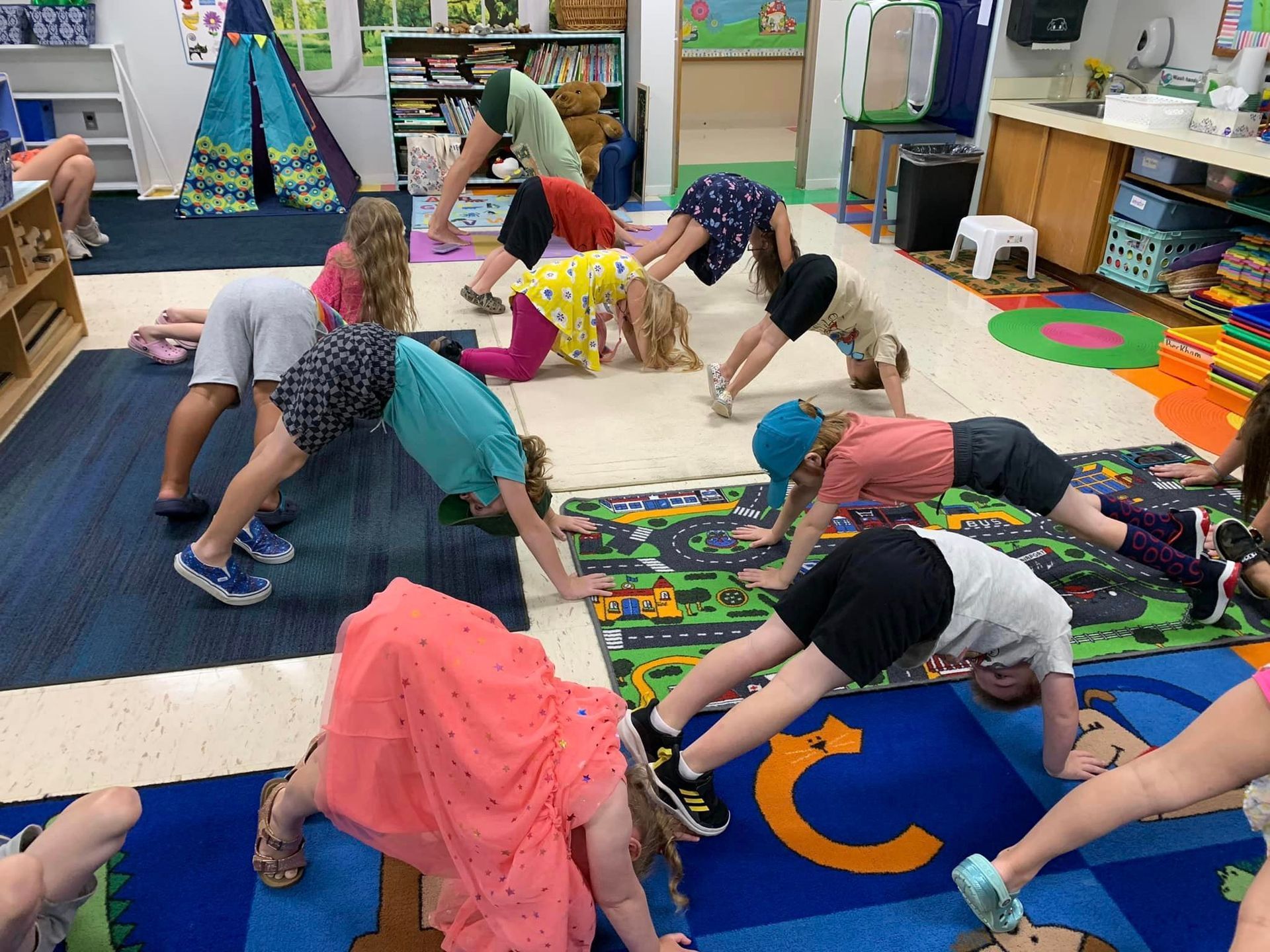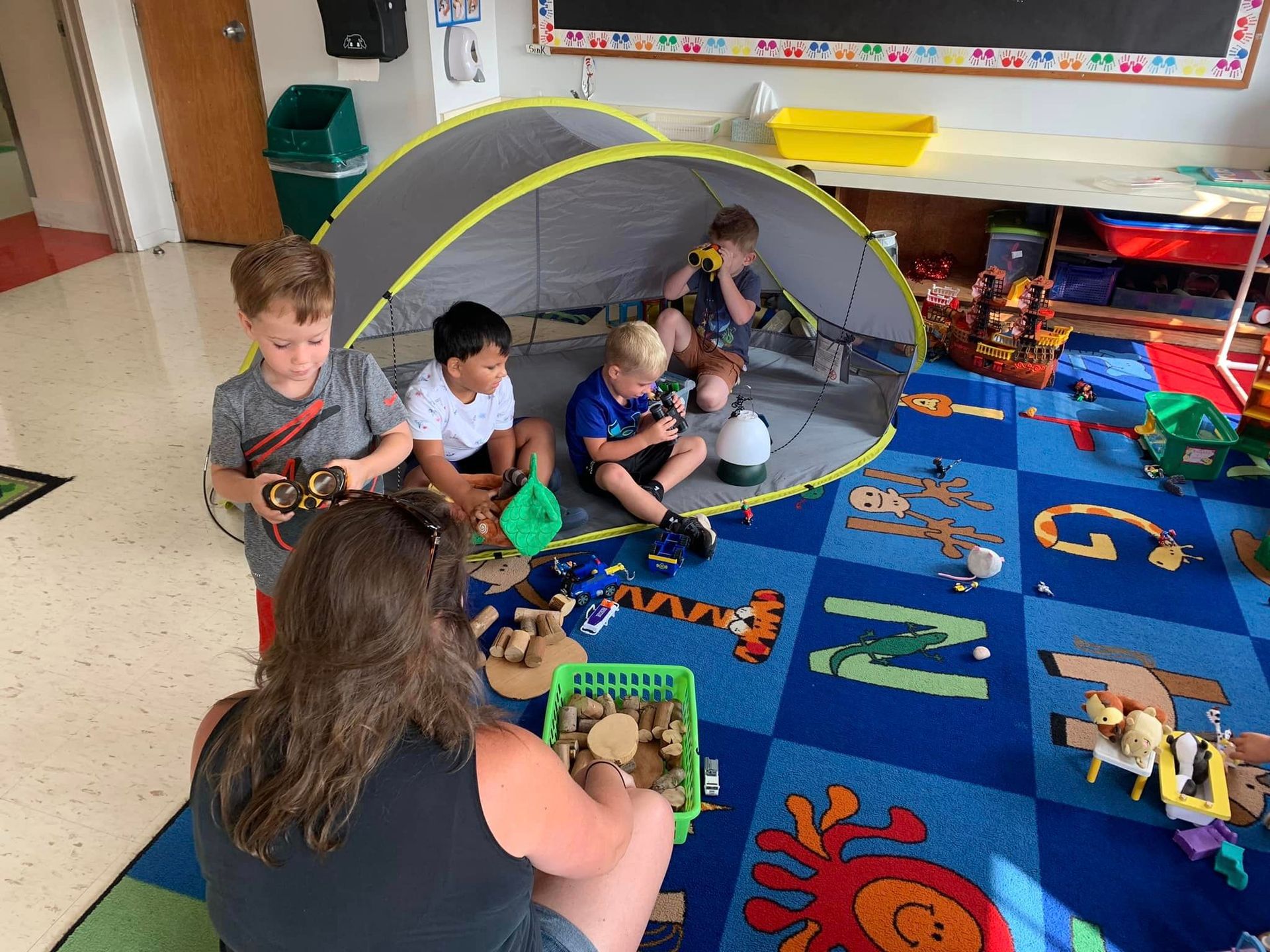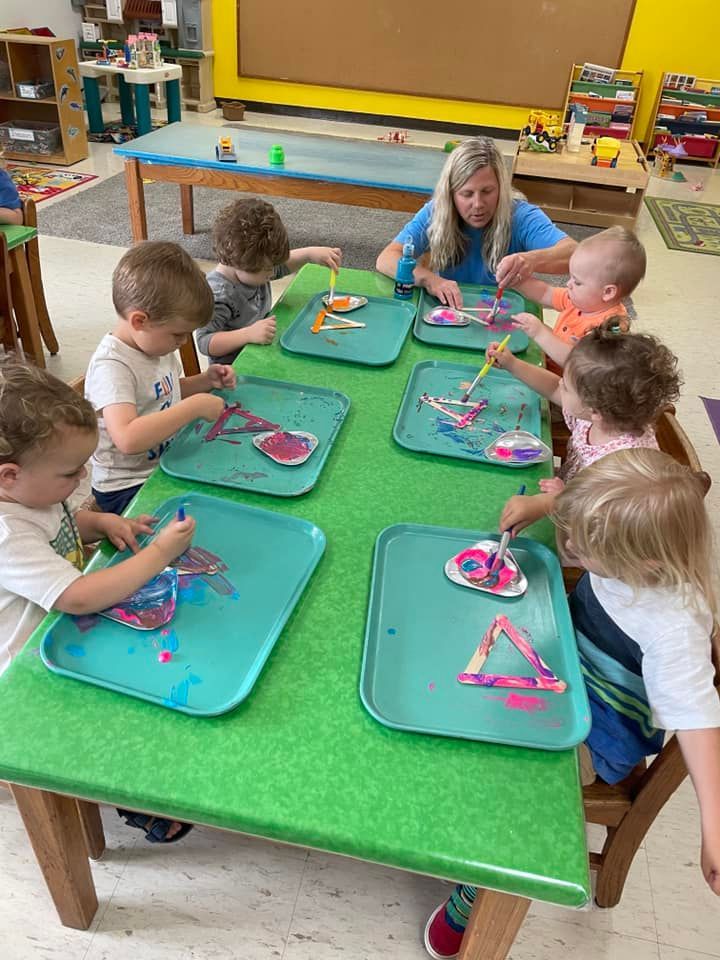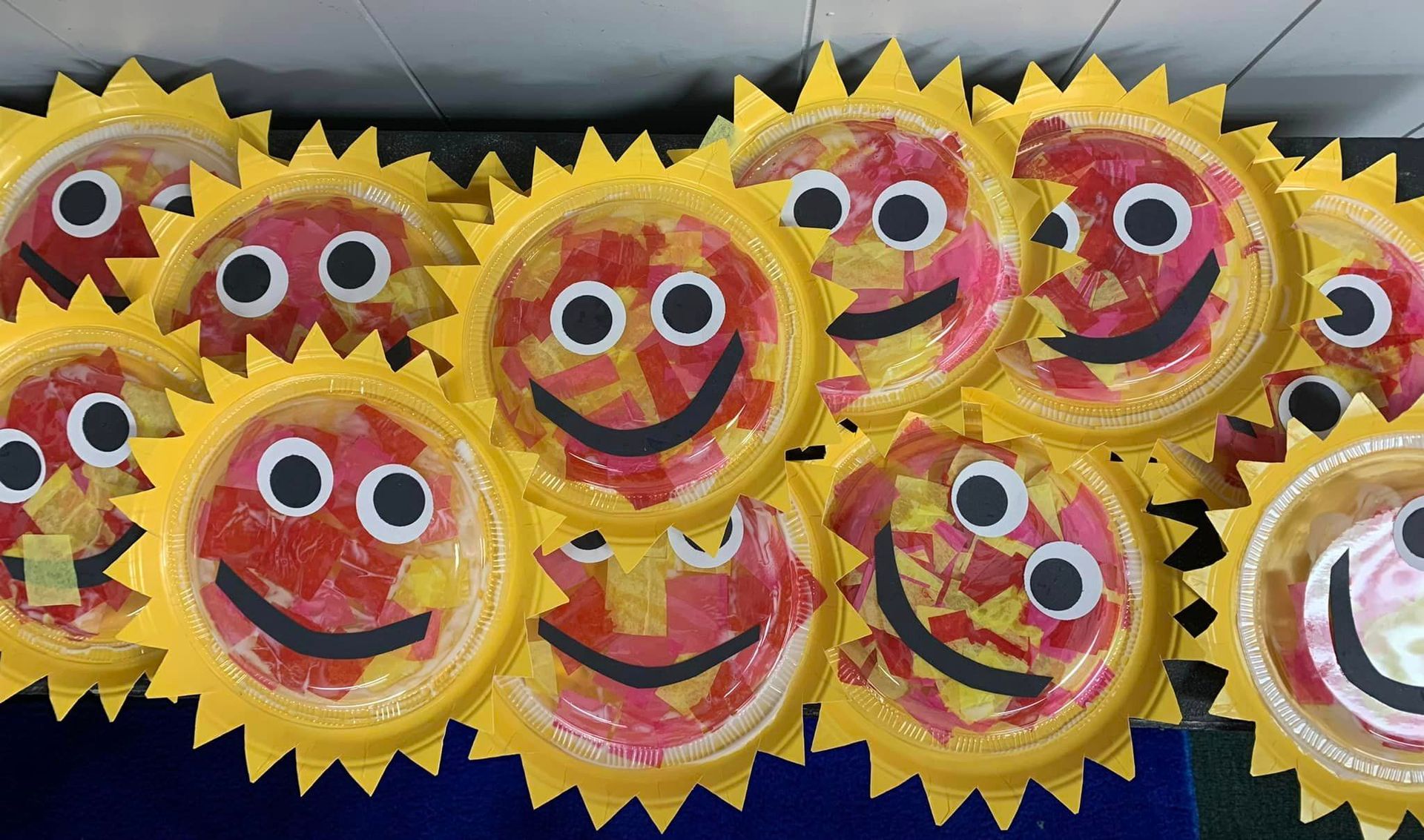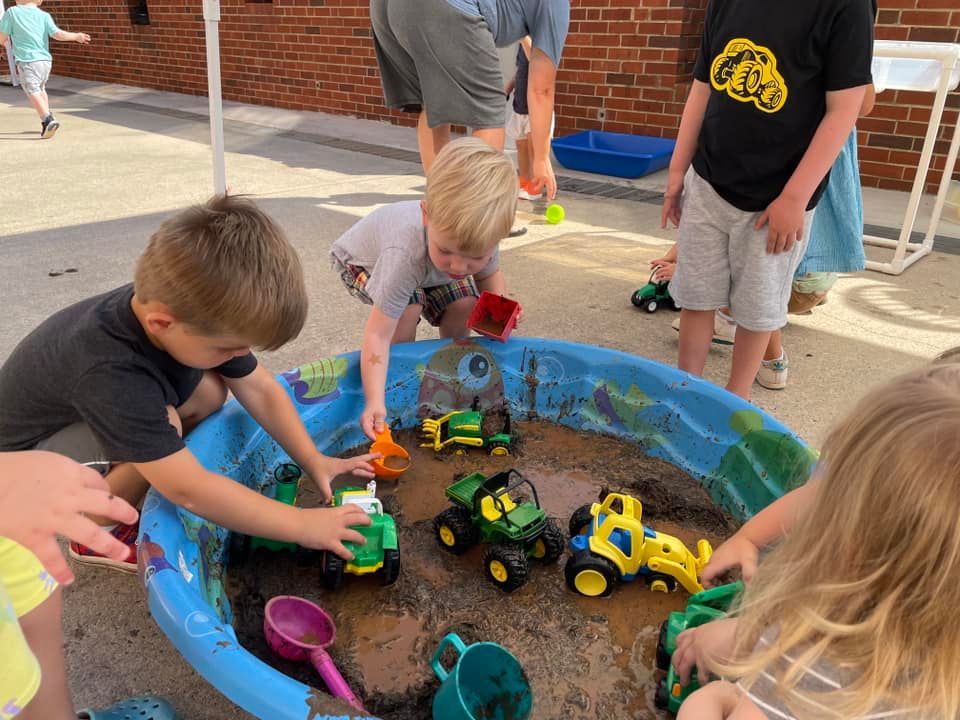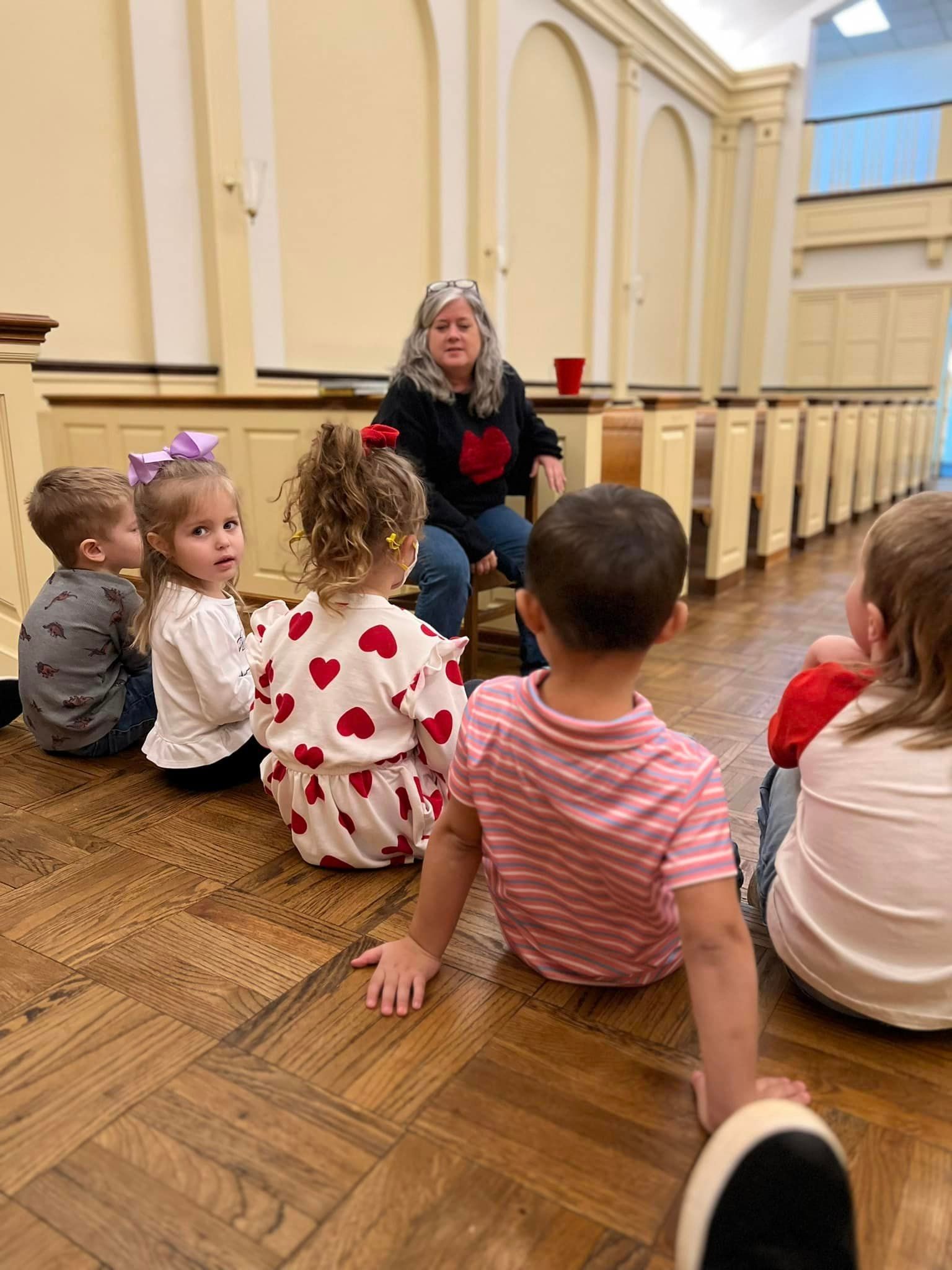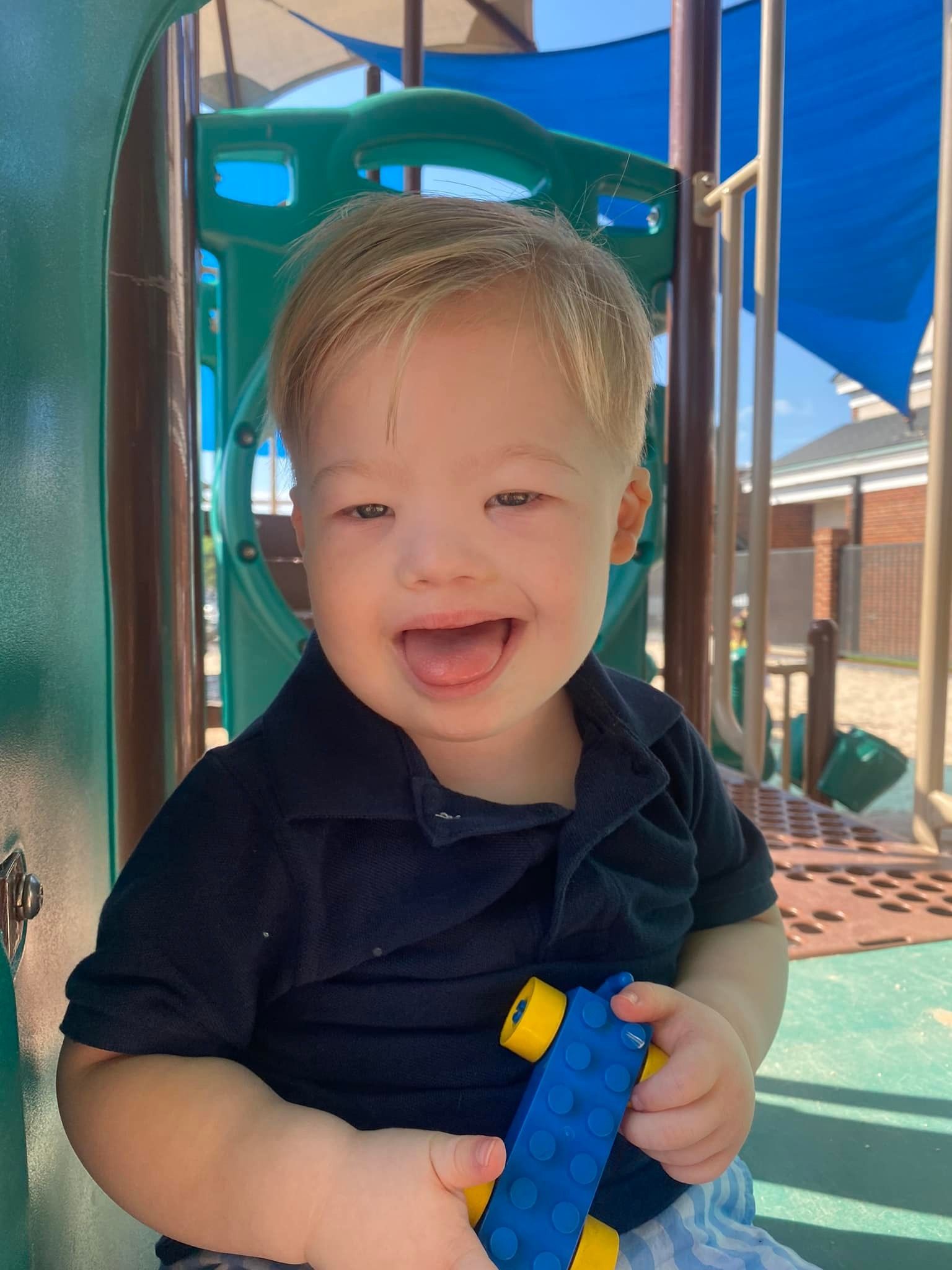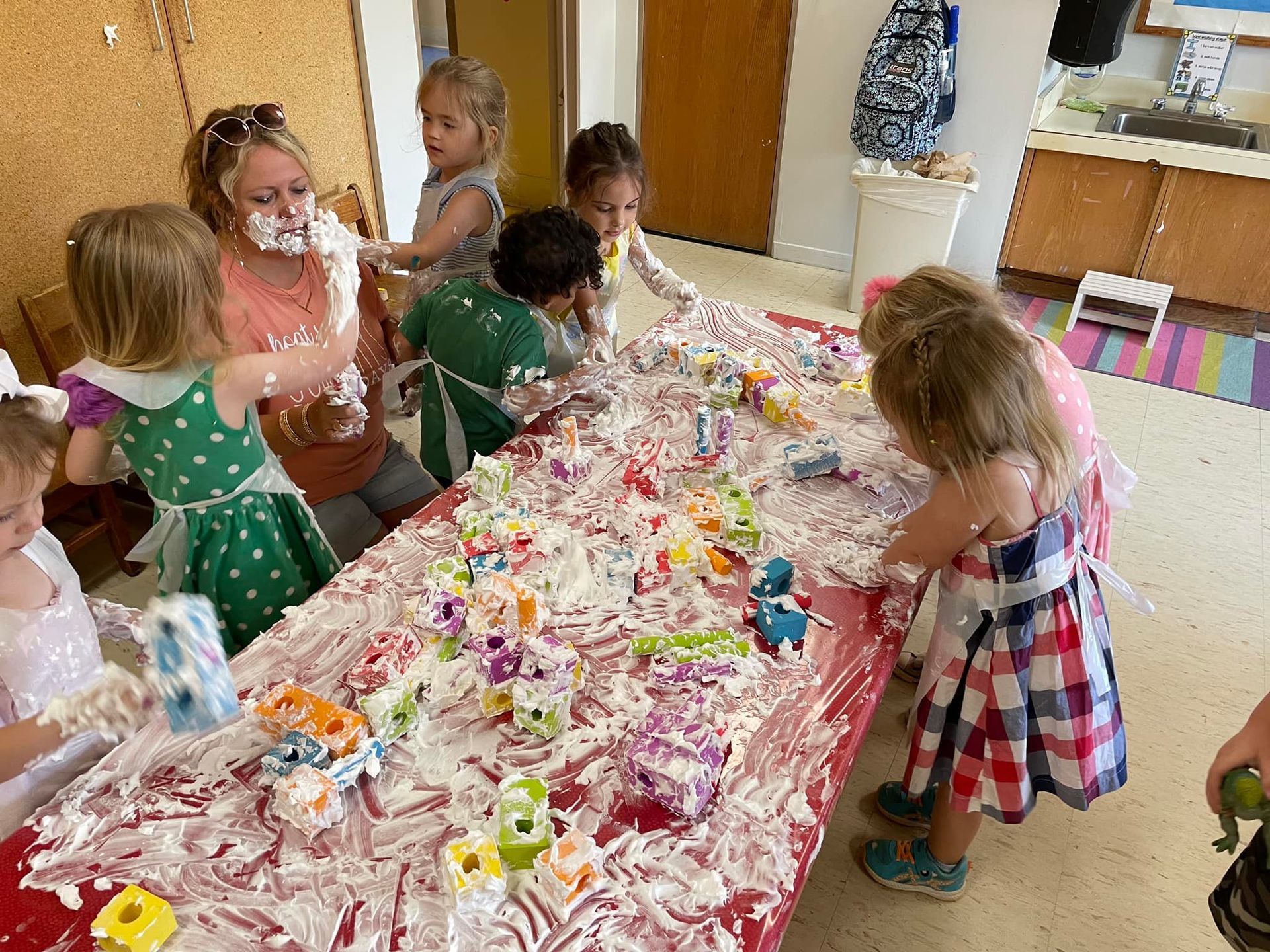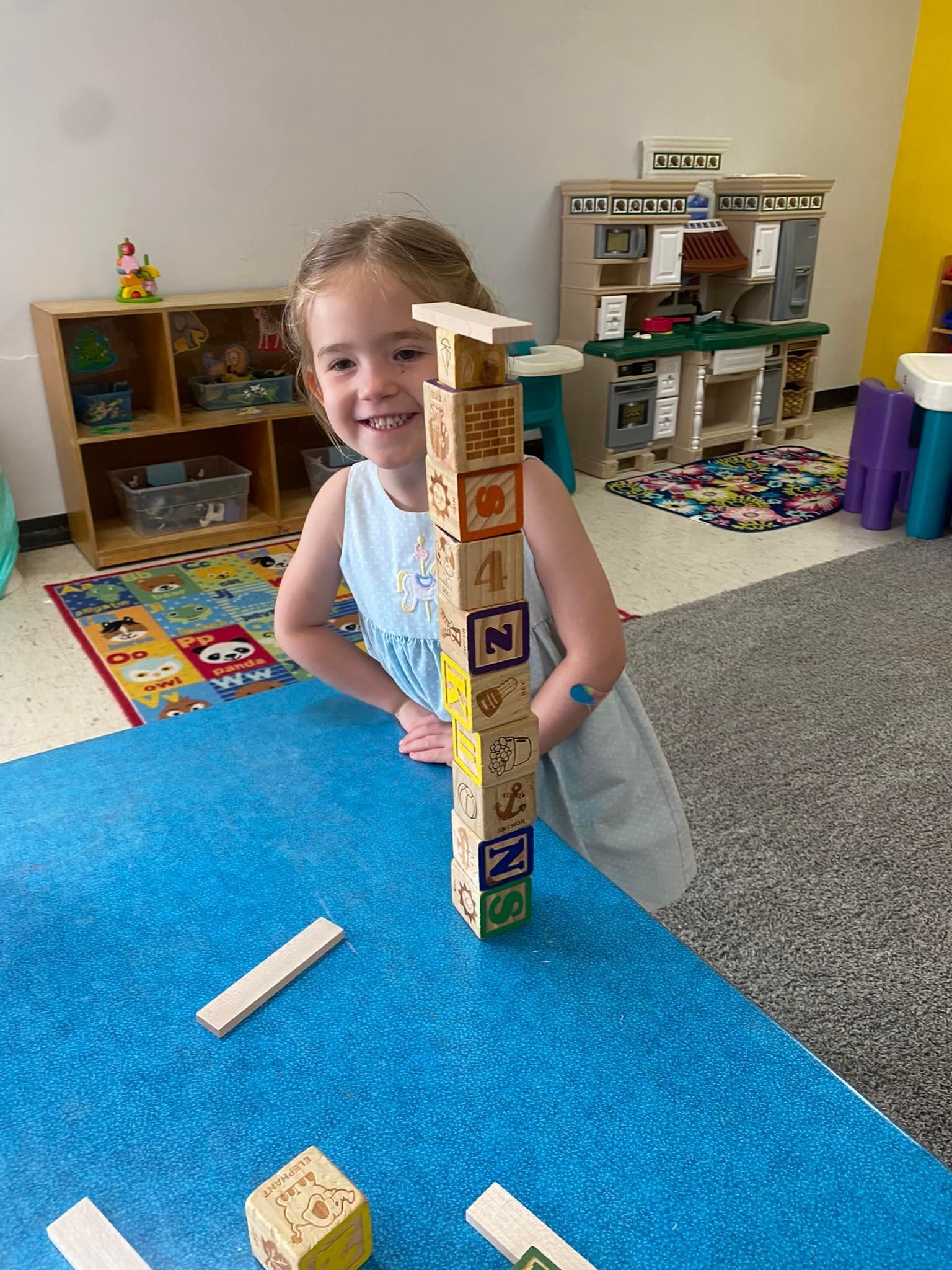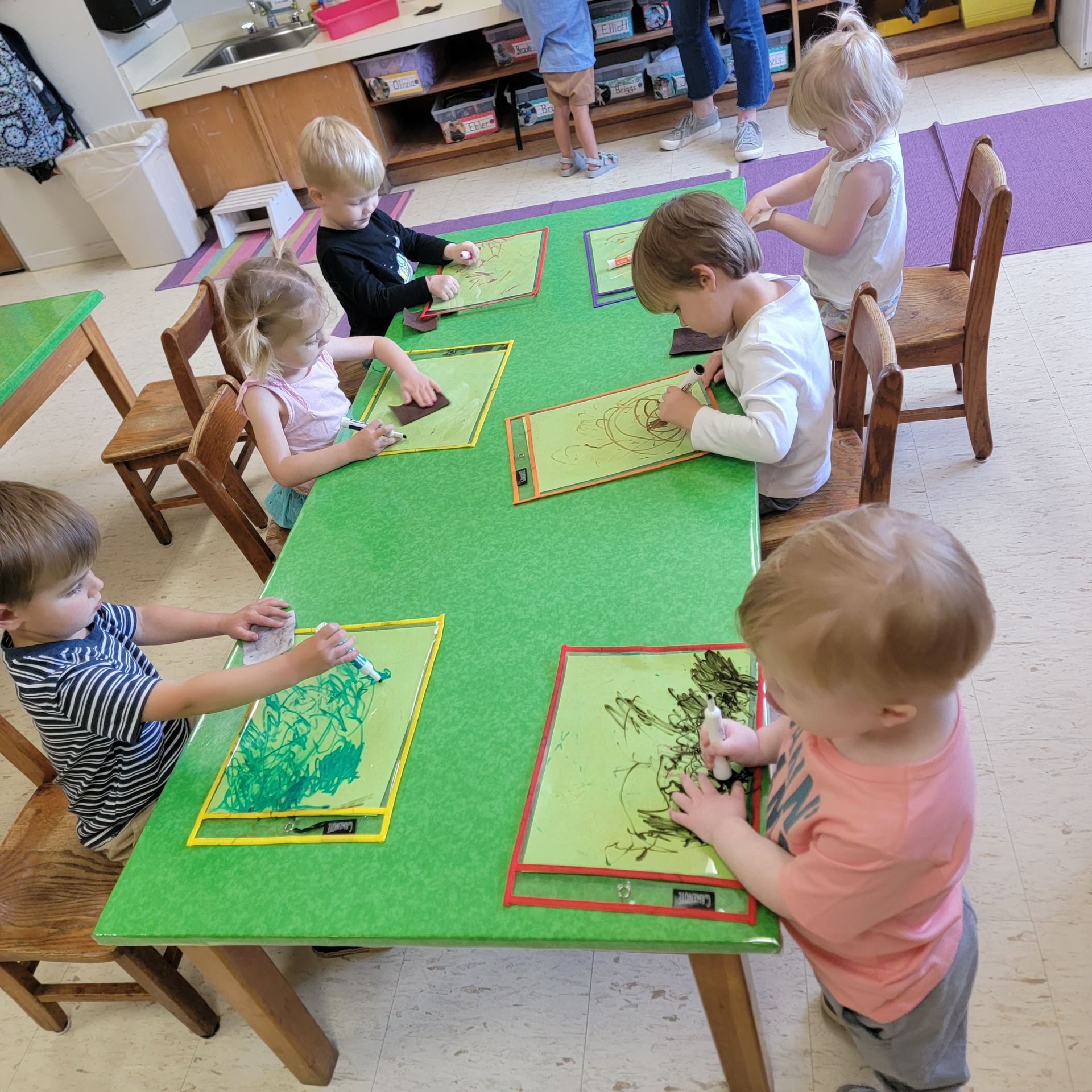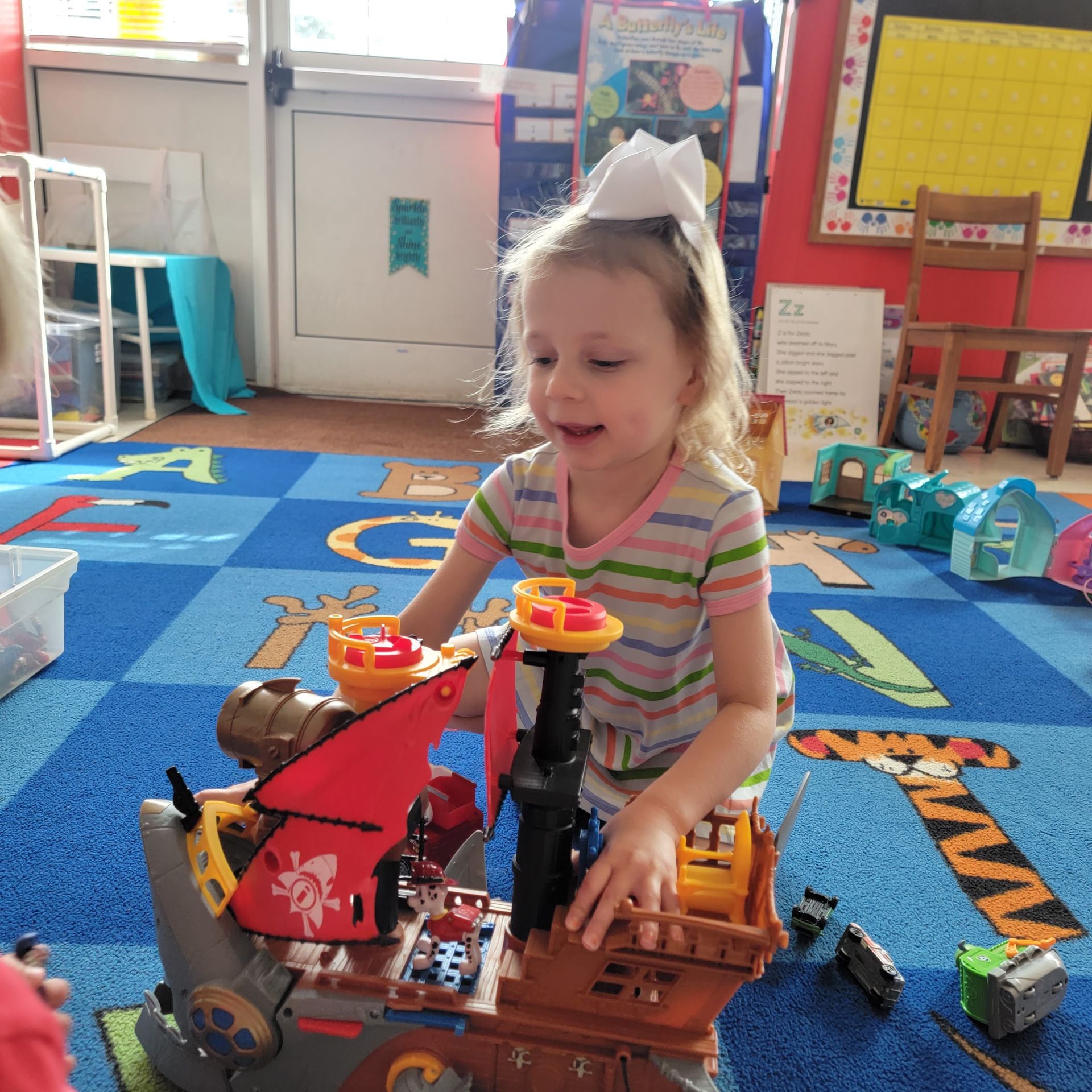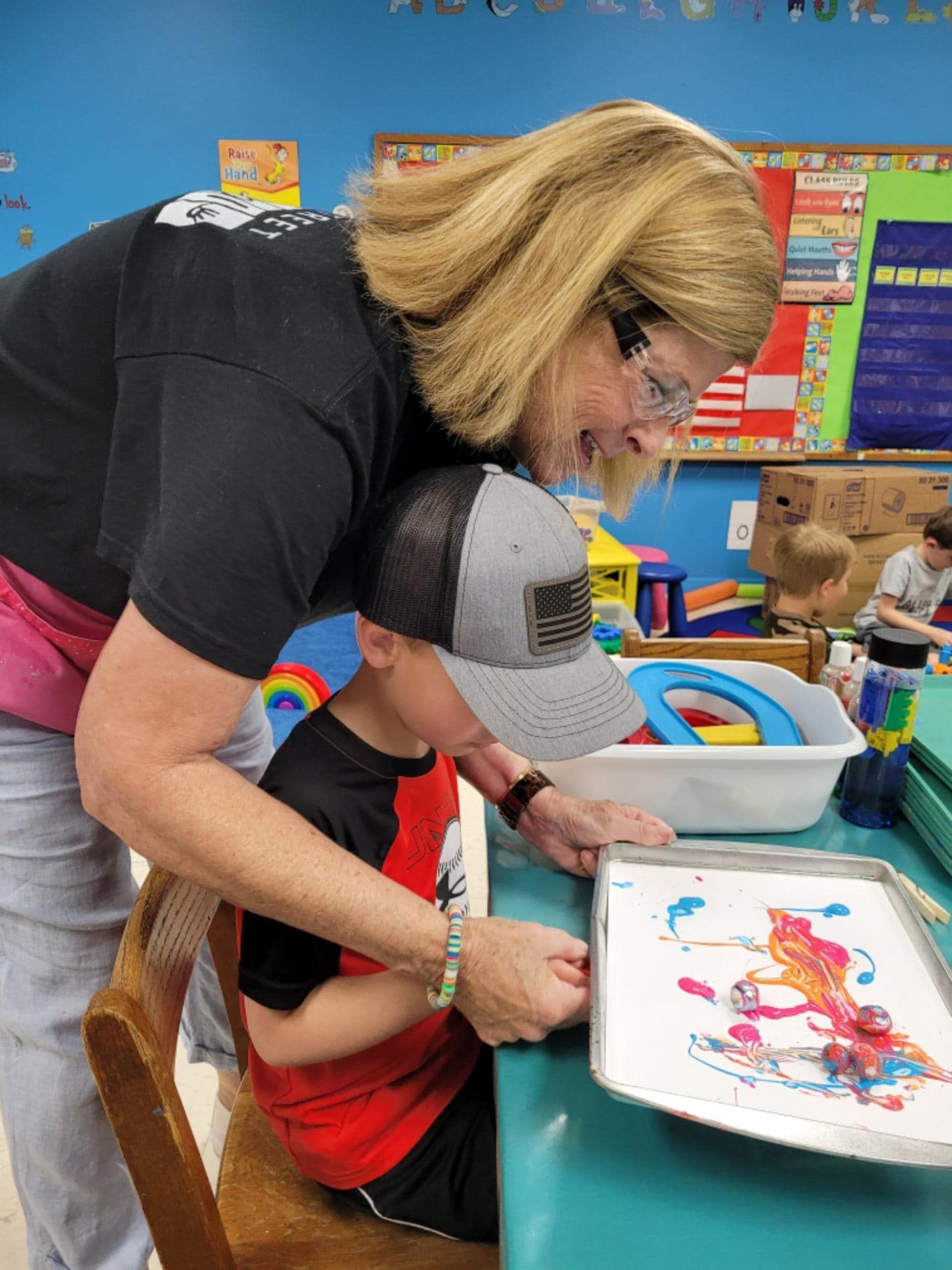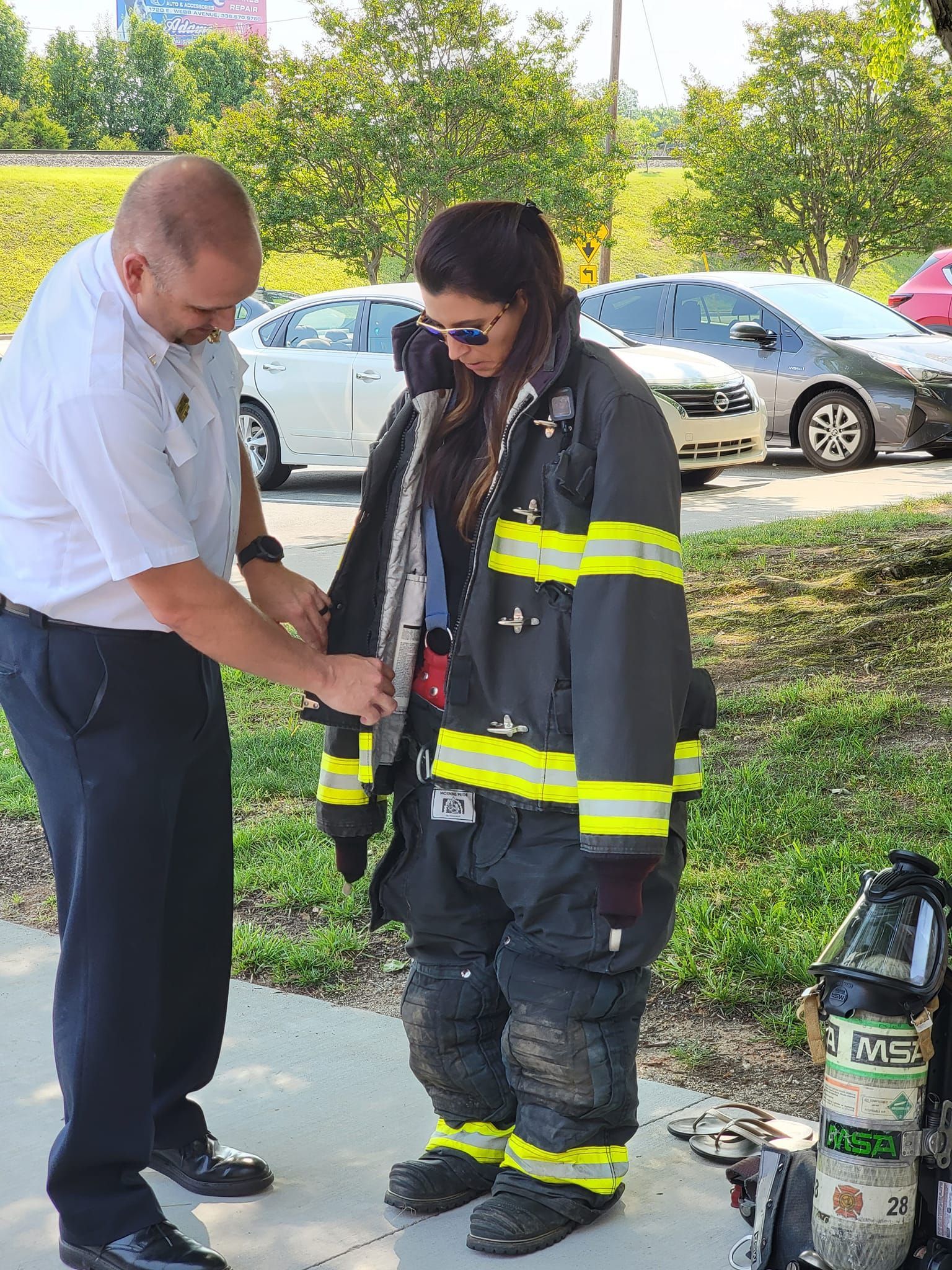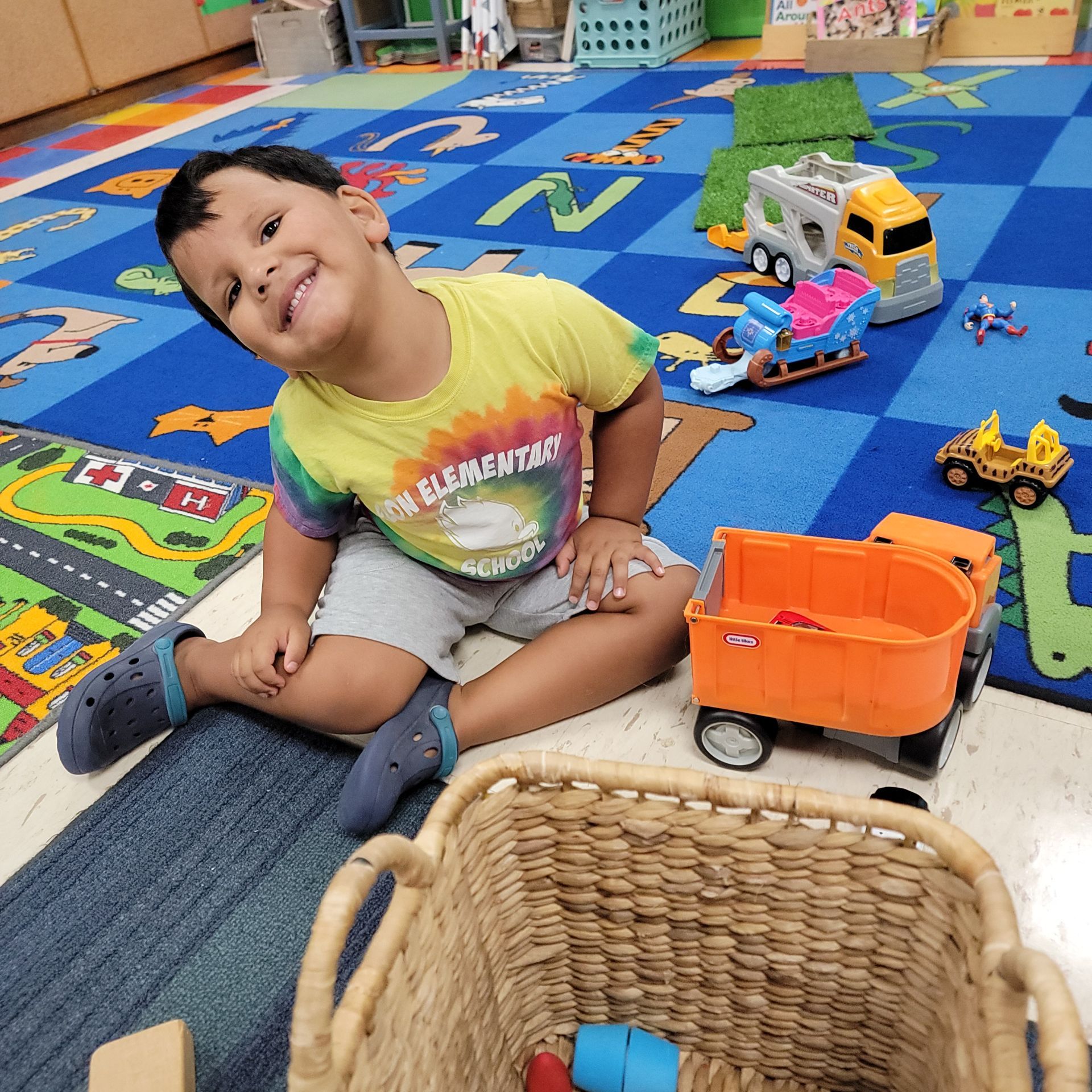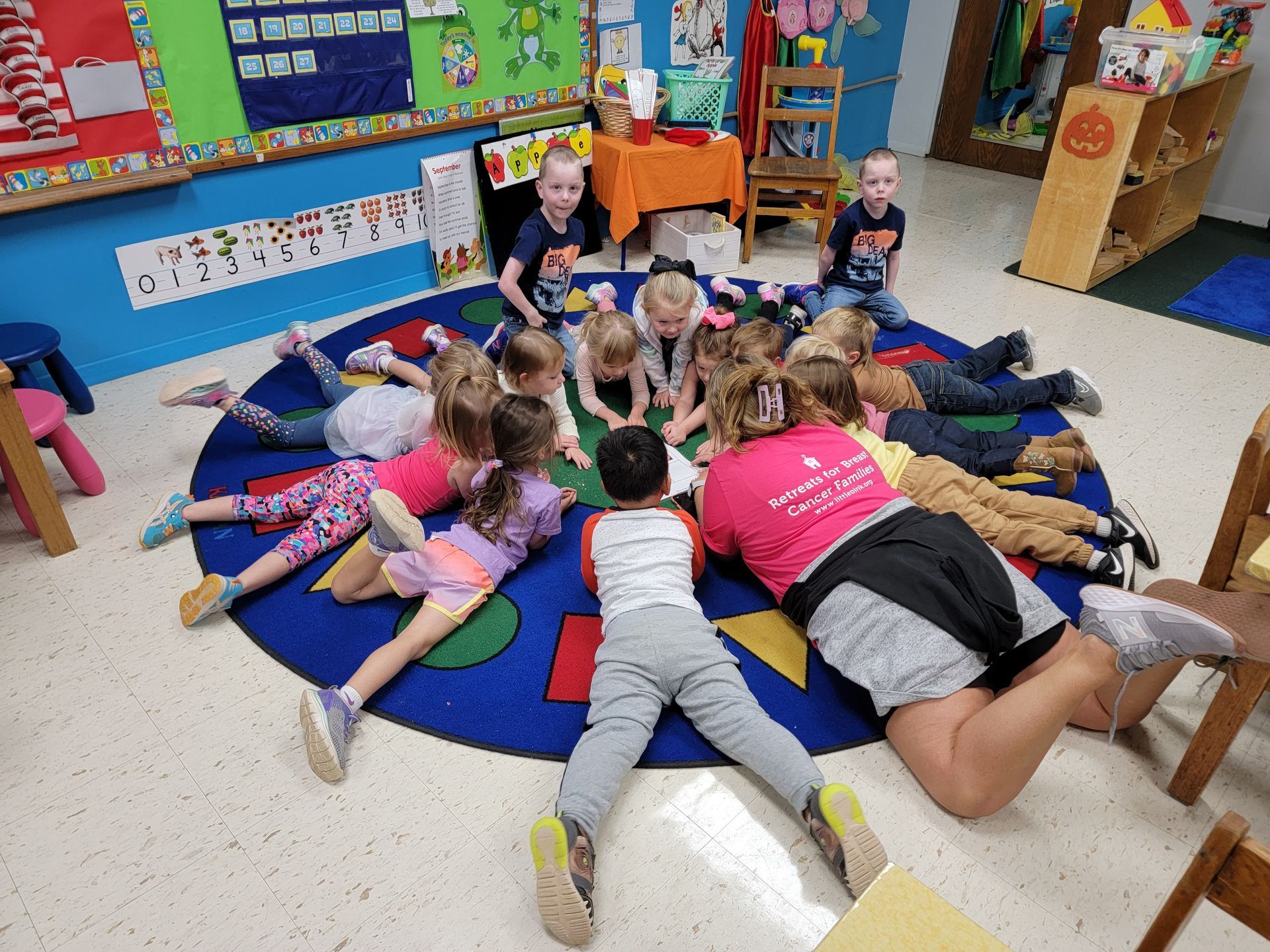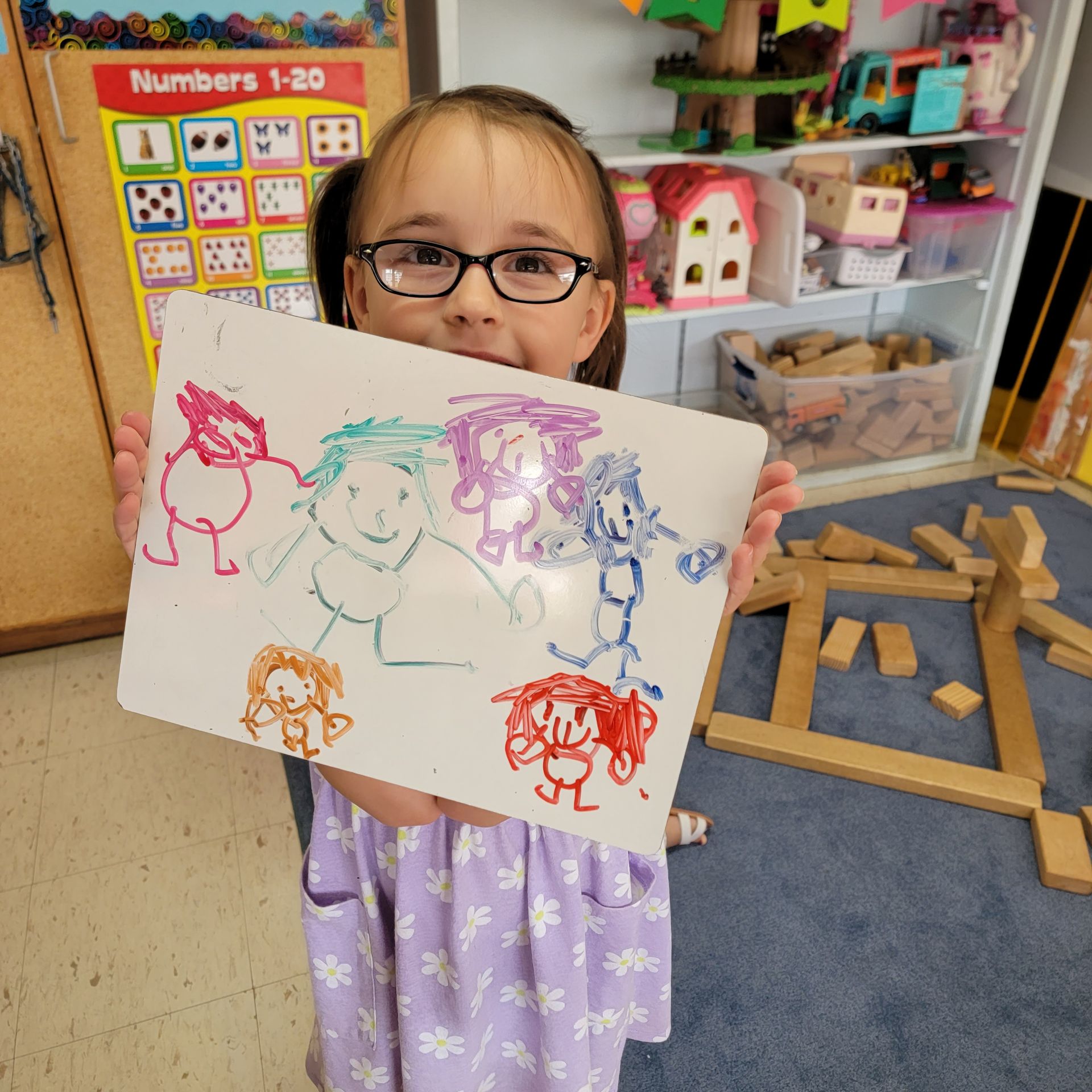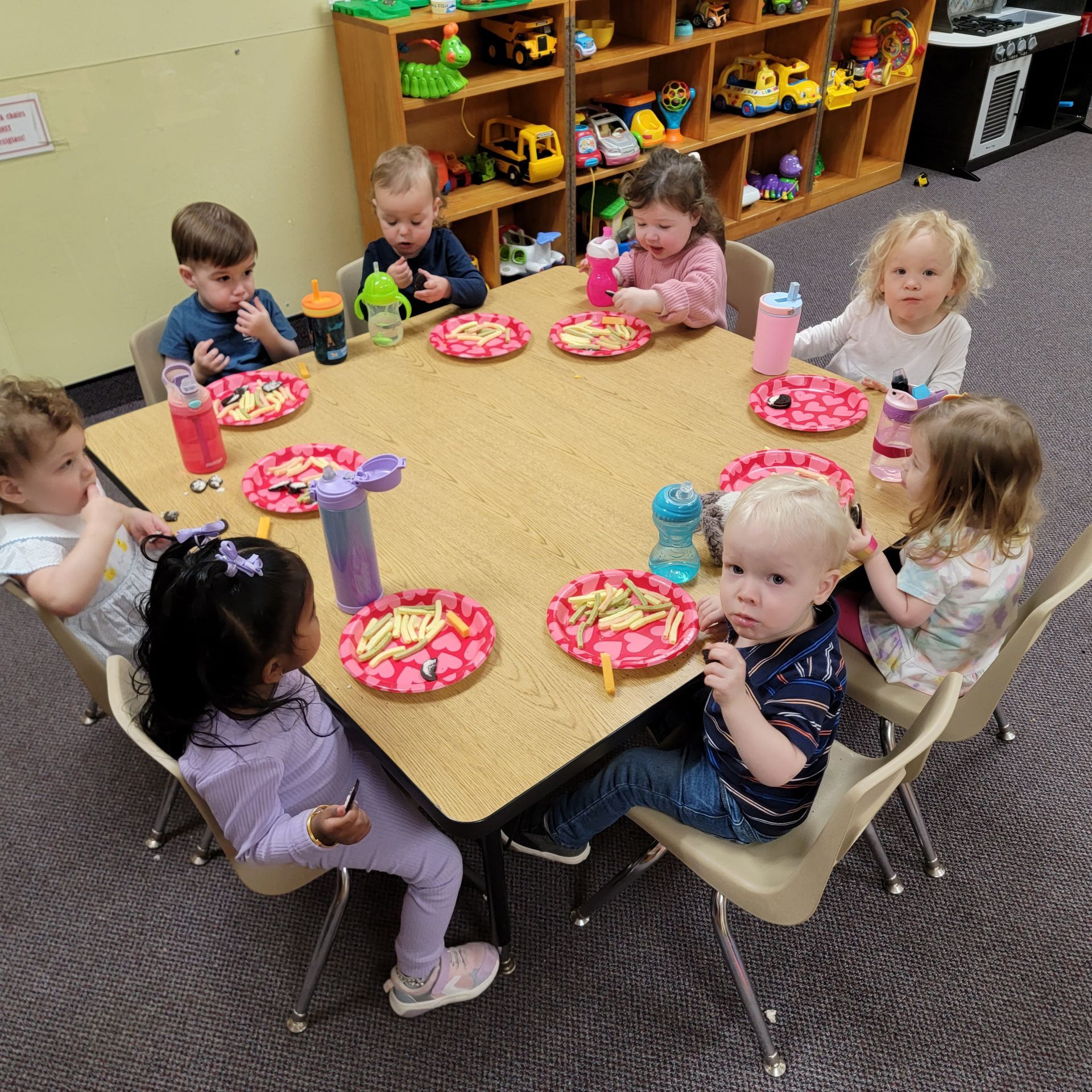Front Street Playschool
Who We Are
Since Front Street Playschool opened its doors in 1970, it has been a pillar of early childhood education in this community. We are a morning preschool program for children who are 1, 2, 3, and 4 years of age by August 31 of the current school year. Using the Alamance Burlington School System’s birthdate cutoff groups children with the same peer set with whom they will proceed into elementary school.
The goal of our program is to provide a safe, happy environment in which young children have the opportunity to develop socially, emotionally, cognitively and spiritually.
It is our philosophy that instilling a love of learning in a child is the most effective way to prepare him or her for further education.
We believe in hands-on learning. An abundance of research has shown that preschoolers learn best by doing. Touching, seeing, hearing, tasting and even smelling make learning meaningful for them.
Relationships are very important to us at Front Street, our relationships with the children and families that we serve, and the relationships the children develop with each other. Because social skills are among the most important skills children will use for success in both school and life, we place a high value on encouraging social and emotional development. Front Street Playschool abides by
Safe Sanctuaries.
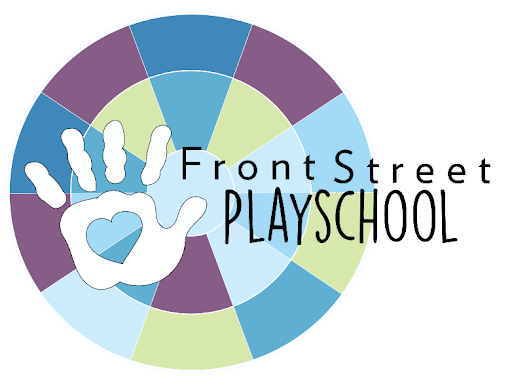
Contact Information
Rebecca Hurdle
Director
Front Street Playschool
P. O. Box 2597
Burlington, NC 27216
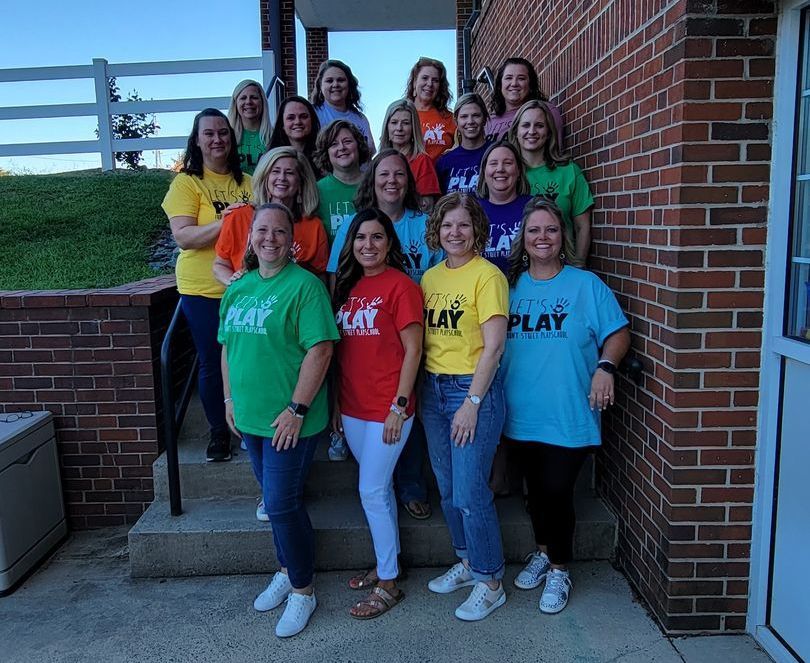
Front St. Playschool Staff 2023-2024
Application Process
The application process for each school year begins the first week of March and our program follows that Alamance Burlington School System’s traditional calendar. During the initial registration period, a tiered priority system is used to fill the classes. This system takes into account if a child is a church member, currently enrolled, and/or has a sibling enrolled. After the initial registration period has completed, any remaining spaces left will be filled on a first come, first serve basis.
Please fill out both the application and medical report to apply:
Enrichment Activities
We offer several different activities to enrich each child’s experience with our program.
Our 2, 3, and 4 year old classes participate in a bi-weekly movement/yoga class, instructed by Mrs. Collins Peavy. Our Movement classes combine mindfulness techniques, breathing skills, yoga movements, and imaginative stories and adventures. Combining easy yoga poses for kids with reading and story adventures helps to grow their bodies and minds. The benefits of yoga go beyond just exercise! Integrating yoga into a child’s regular routine helps develop awareness of their bodies and how they move. This improves motor skills and gives them an outlet for self-expression!
The 3 year old and 4 year old classes attend a biweekly chapel lesson led by one of the ministry leaders at Front Street United Methodist Church. Short age-appropriate lessons are taught based on the liturgical calendar to help share God’s word with our young learners.
All of our classes utilize the patio and the playground for outdoor activities. In bad weather, Aldersgate Hall provides a place for active play.
Office Hours
Receive news and updates from FSUMC
INCLEMENT WEATHER
In case of inclement weather, the church office will follow the delays and closures of the City of Burlington.
For worship services, any cancellations will be publicized on Facebook, our website, FOX8, and WFMY News 2.

